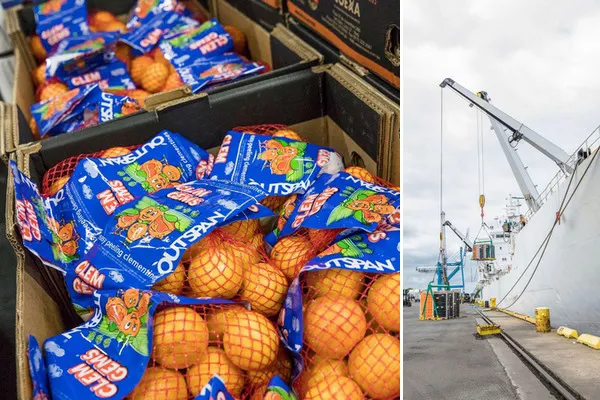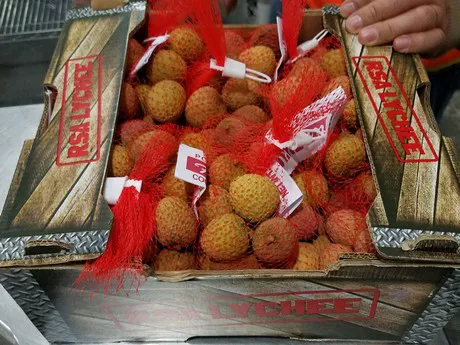South Africa’s citrus exports to the United States have over recent years grown to a value of almost R1.7 billion (close to 808 million euros), a consistent performer during the past few turbulent seasons – but it is at risk if the United States decides not to extend their free trade agreement with South Africa due to the latter’s recent closeness to President Putin.
During the Clinton administration the United States introduced AGOA, the African Growth and Opportunity Act, a preferential trade agreement with many African countries of which South Africa is by far the largest beneficiary, notes Dr Mmatlou Kalaba of the Bureau for Food and Agricultural Policy.
“The current US tariff on citrus for countries without any trade arrangement is within the range between $1.5/kg to $2.5/kg. That would be approximately between R30 and R50 per kg but of course, currently South African citrus does not face those tariffs in the United States,” he says.

South Africa is better off with AGOA than without it
“South Africa is in a more advantageous position than other AGOA beneficiaries in the sense that we are able to produce and export a whole range of products, close to 50 different products plus processed products like cheese which gives the country the benefit of scale."
South Africa’s participation in AGOA – due to be extended (or not) in 2025 – is under discussion because last year South Africa hosted Russian vessels currently under UN embargo at South African ports for reasons the South African government has not been willing to divulge.
The US Ambassador to South Africa dropped a bombshell two weeks ago when he claimed that Russia had come to South Africa load up arms for, the Ambassador maintained, the war in Ukraine.
Ambassador Reuben Brigety made specific reference to AGOA at the press conference which has been widely interpreted as veiled threat to South Africa’s trade of close to R60 billion in vehicles, metals, light manufacturing, wine and fresh produce with America.
AGOA makes South African exports competitive
South Africa doesn’t have a trade deficit with the USA in agriculture. After citrus exports from the Western and Northern Cape, the second largest category of agricultural exports to the US is nuts (R1.30 billion) followed by grapes in the third place, earning South Africa just under R570 million. South African dried fruit is the fourth largest category exported to the USA.
South Africa also exports berries, cut flowers, litchis and stonefruit to the US.
“Entering a developed market like the US – the single biggest consumer market in the world - at lower cost makes South African producers with their lower production costs competitive. However, a developed market like the US is as a rule very protective of its economy, especially around agriculture. They often protect local growers through difficult conditions for instance phytosanitary barriers to trade which makes it extremely expensive to comply. However, through AGOA those conditions are substantially reduced.”

South African litchis in the USA
He continues: “AGOA has become very important for South African trade to the US, it has definitely made a difference. Without AGOA South Africa would not have been able to export so much volume to the United States but it has not been without its own challenges.”
Domestic fruit producers in the US have lobbied against citrus imports from South Africa and a promise to widen access for all South African citrus has been stalled through lobbying by US poultry, pork and beef sectors.
Dr Kalaba, who has been part of AGOA negotiations, remarks that the previous round was different from before.
African countries want greater decision-making in AGOA process
“For the first time, African countries went to the US as a bloc under the auspices of the African Commission, not as individual countries even though the US would still offer different packages to individual countries. African countries under AGOA are recipients and therefore have very little say in what gets decided.”
There are very strict conditions set for beneficiary countries.
The US has no similar trade agreements with Latin America or the European Union.
“Without AGOA, South Africa would probably still export to the USA but probably at the same tariffs as for our competitors. South Africa will not have that edge any longer. We will start paying higher tariffs, even higher inspection, eventually we’ll send less to the US, affecting profitability of farmers.”
He observes that South African farmers would then have to find new markets to replace what was lost in the US, further pushing down domestic prices of, for instance, citrus with an impact eventually evident on employment on farms and spill over, he says, into the ability of producers to repay longterm loans. For more information:
For more information:
Dr Mmatlou Kalaba
Bureau for Food and Agricultural Policy
Tel: +27 083 276 138412 420 5770
Email: mmatlou@bfap.co.za
https://www.bfap.co.za/
